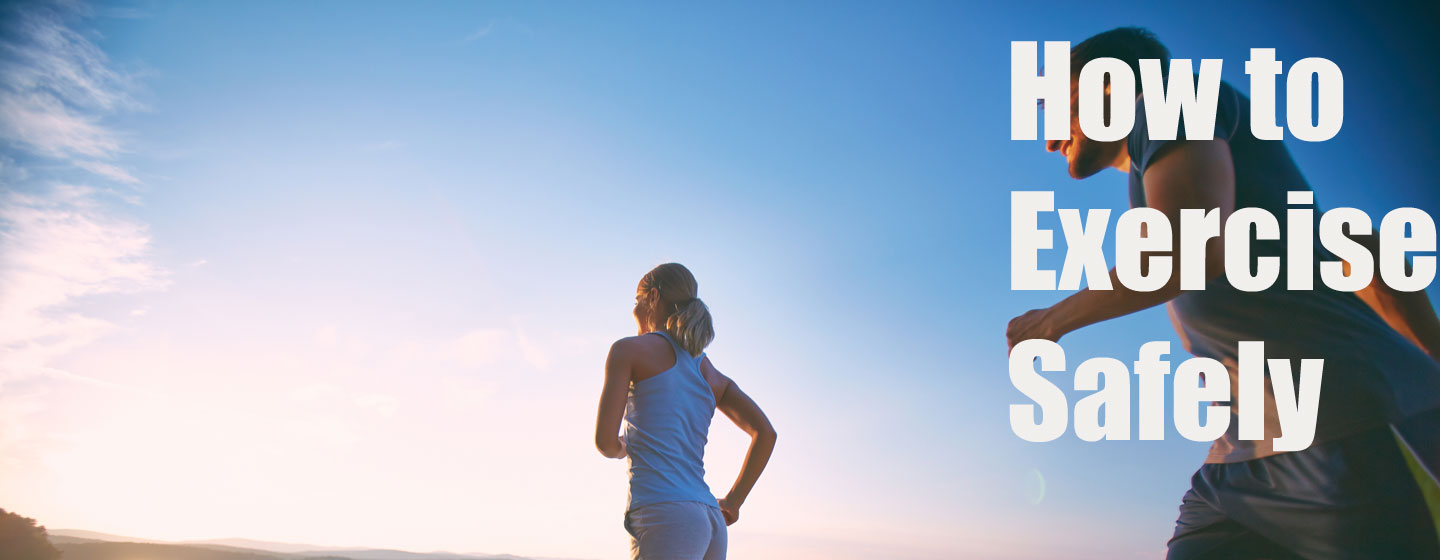Exercising regularly is an important part of maintaining a healthy lifestyle. It not only helps strengthen the heart and lungs, and improve overall muscle strength, but also reduces stress, and helps to maintain a healthy weight. In addition, regular exercise can also help to reduce the risk of certain diseases such as high blood pressure and diabetes.
Regular cardiovascular exercise can help to promote weight loss as well as improve the health of your heart and lungs. Strength training, on the other hand, such as Gymnastics Training or swimming tends to improve bone density and can reduce your risk of injury during normal day-to-day activities. Exercising does come with some risks, however, especially when not done under the expertise of professionals. That is why here are a few tips to help you stay safe and reduce your chances of injury during exercise.

Start Slowly
If you have a sedentary job and have not engaged in any regular exercise since you had P.E. lessons at school then it would not be a good idea to try to run a marathon or enter a gymnastics competition during the first few weeks of your new exercise regimen. Start gently and listen to your body. It’s normal to feel tired and a little achy after exercise, but if you experience serious pain during your workout then that is your body’s way of telling you to stop whatever it is you are doing. If you find that you are experiencing pain from your exercise routines, you may find that you’re wanting to rest and recuperate until you are pain-free and can start again slowly. If you’re also wanting to possibly speed up the healing process, while decreasing your pain, then start taking a look at websites such as https://area52.com/delta-8-products/ or others in order to find natural pain-relieving products.
You don’t have to rush out and buy expensive, high-tech clothing and equipment for your first few workouts, but it is important that you dress sensibly. Loose fitting tracksuit bottoms, a t-shirt and a decent pair of training shoes will do for most activities. If you find that you really enjoy your chosen sport you can invest in specialist gear later.
Consult Your Doctor
If you have an ongoing medical condition, speak to your doctor before you start exercising. You should also speak to your doctor if you experience chest pains or serious difficulty breathing during your training sessions.
Certain health issues like obesity, hypothyroidism, or low testosterone can impact your ability to exercise effectively and safely. In such cases, consulting with a medical professional is crucial. They may recommend exploring options like testosterone replacement therapy (TRT) to restore optimal hormone levels. Clinics offering TRT West Des Moines, or someplace nearby, can provide guidance and treatment to help you overcome these obstacles and pursue your fitness goals without compromising your health.
Don’t Take Shortcuts
Always start your workouts with a gentle warm-up. A warm-up should consist of a few minutes of jogging, skipping or other light exercise, followed by some stretching. If you are lifting weights, start with a light weight (the empty bar is a good starting point). Get used to the movement and make sure that your form is perfect before you move up to heavier weights.
Start with a fairly short workout and increase the duration and intensity gradually as your fitness increases. Training for too long or pushing yourself too hard is likely to lead to serious injury. Take frequent, short breaks and sip on water throughout your workout. Pay careful attention to your hydration levels, especially when the weather is particularly warm or humid. Dehydration and heat exhaustion can strike suddenly and can be serious if not treated promptly.
Do not stop your workout abruptly. Spend a few minutes doing some low intensity cardio or light stretching to cool down.
Don’t Neglect Rest
In between workouts, try to get plenty of rest. When you are just starting to work out, it is a good idea to give yourself at least 48 hours in between sessions to recover. You may also want to look into getting a Swedish Massage in Denville, NJ, or somewhere nearer to you, as this can encourage your body to relax, easing tensions and physical aches. You can increase the frequency of your workouts as you get more experienced.
Make sure that you are eating enough to sustain your current activity level and that you are getting plenty of sleep. Over-training whilst under-eating or getting too little sleep is likely to lead to injuries which would set your progress back a long way.
